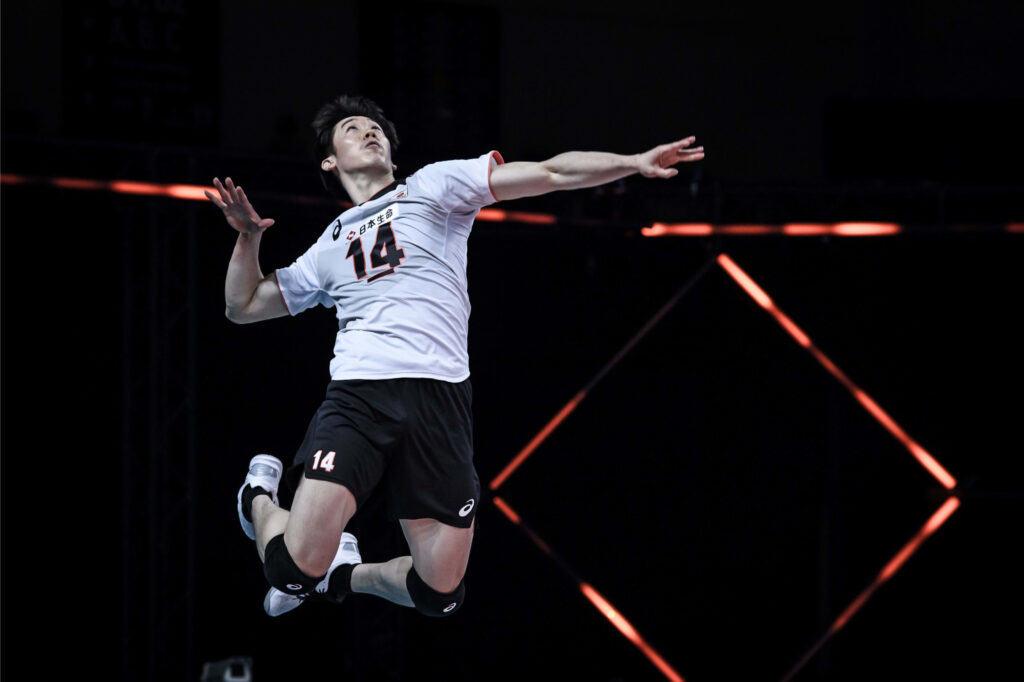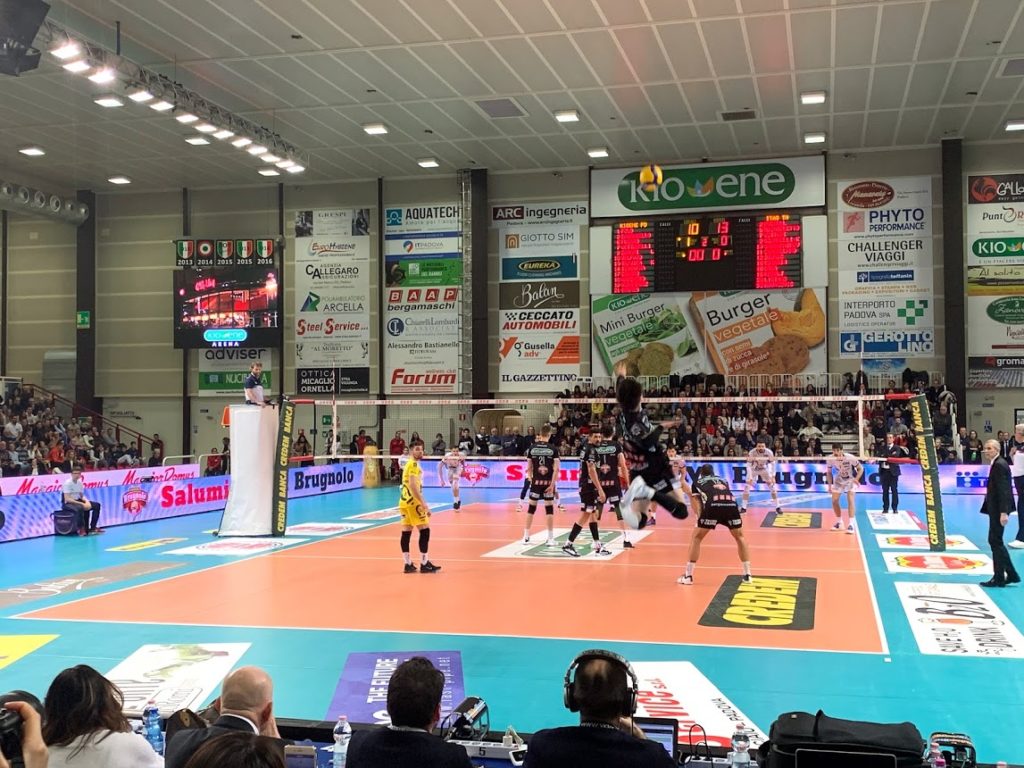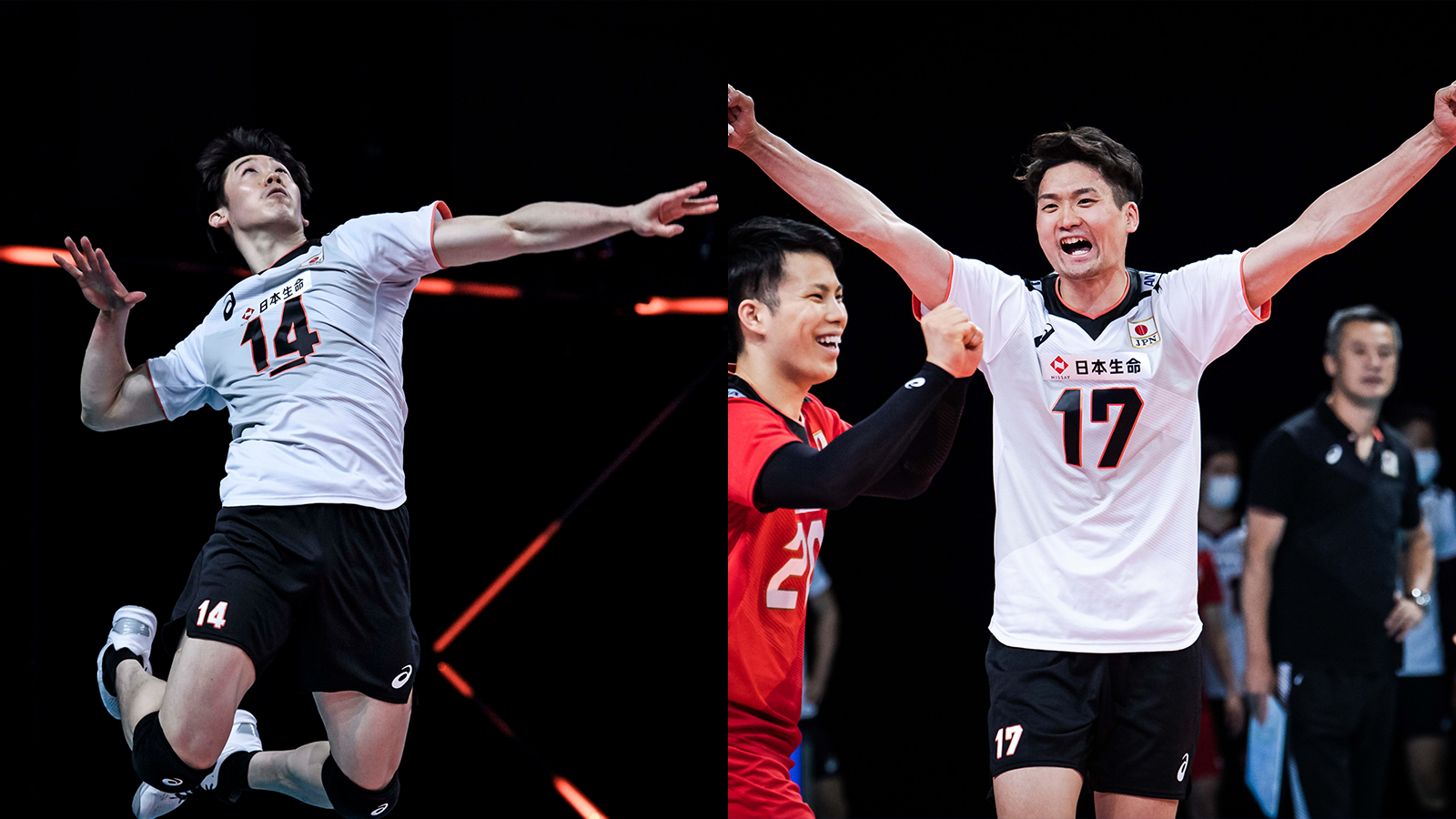#14 Yuki Ishikawa

Sorry to have kept you waiting. Lastly, we have Yuki Ishikawa. I'm impressed with how far he's come as a player.
Ishikawa, as usual, was the runner-up in the JOC Cup in his third year of junior high school, and was also selected as an outstanding player, so I only checked his name at the time, but he was still just over 180cm tall at the time, and Yamazaki (currently at Sakai), who was also on the Aichi selection team and Hata (currently at Suntory), who was also a winner as a member of the Tokyo selection team, were more popular at that time. He then went on to Seijo High School. My impression of Seijo at the time was that they had won the Inter-High and National Sports Festivals in the generation of Fukatsu Mitsuo (currently at Panasonic) and Watanabe (currently at Panasonic), but after that they lost to Daido University in the prefectural preliminaries and were struggling to even make it to the national tournament. Ishikawa played an active role as a starter with Yamazaki from his first year, and Seijo made it to the top four in the Inter-High. At that time, they were introduced in the monthly volleyball magazine as a first-year ace duo, and they were still only about 184cm tall, so I just thought, "They're the usual combination of a big power type and a small technique type."
However, when he became a second-year student, he won the Inter-High School Championships, and then he kept winning and winning and winning, achieving an unprecedented six titles in two years. The first thing that surprised me was his growth. When he was in his second year of high school, he was about 190 cm tall. But up until that point, Yamazaki was slightly taller and had more power. But by the time of the Spring High School Championships in his second year, he had grown even taller, and I think Ishikawa was already taller and more powerful. It's incredible when you add height to a player who was already a great player. In the high school volleyball world, he was at an overwhelming level that you have to say he was cheating. I watched the Inter-High School Championships final in his third year at the venue, and I felt sorry for his opponent, Otsuka (lol). He would hit spikes from above, and I couldn't return his jump serve even with four receivers. He was in a different dimension, even though we were both high school students. I remember him shining brilliantly among the group of talented players, and six of the seven starters later became volleyball players. Seeing Ishikawa Yuki's overwhelming performance, which could be described as artistic, I, who had been devoted to overseas volleyball since then, thought to myself, "There's no point in this player staying in Japan! There's no point in him playing in the Japanese university league, so I want him to go overseas as soon as possible!!" Then, after that, I happened to be next to him in the men's restroom, and although I thought "This is my chance!" at first, I got embarrassed and stopped talking to him (laughs).
But perhaps his wish was granted, as the following year, during his first year at Chuo University, he transferred to Modena, a strong club in the Italian Serie A, for a short period of time. This event was quite a shock, but also made me very happy. That year, Modena had gathered a lot of players, including Bruno from Brazil and Nugapet from France, so I was personally paying attention to them, but I never thought that Ishikawa would join them, even if it was only for a short period of time. In the first place, I had never heard of a university student playing for an overseas club while remaining enrolled at the university. As expected, Ishikawa was in a class of his own. However, I remember that he hardly played in any games at this time. However, he played for Latina in his third and fourth years, and started to play in games from around this time. After graduating, he officially became a professional player and steadily climbed the ladder in Serie A, going from Siena to Padua to Milan. There have been Japanese players who have played in Serie A in the past, but I don't think there has been anyone who has played so consistently and performed so well. In February 2020, just before the COVID-19 pandemic, I watched Ishikawa's game in Padua, and he was amazing. He was doing well in Serie A. It was as if it was natural for him to be there. The match was against the strong Trento, but he was not inferior to the Trento players at all. On the contrary, Ishikawa's performance in this match was even more amazing. His serves were particularly fast, and the opponent even took measures such as putting in a receiver just for Ishikawa's serves. He was also extremely trusted by his team's setter, and I think that the high sets at the crucial points of the match were given to Ishikawa more than the opposite. In the end, Trento won the match in a comeback after a full set, but I was simply happy that Ishikawa had become such a "Serie A player."

Ishikawa's serve (photo by author)
Ishikawa has opened up the possibilities for Japanese volleyballers. This is what the volleyball boys of the future will aim for. Until now, after graduating from high school, the only path was to play at a university in the Kanto Division 1, play in the V League, and become a representative, but Ishikawa has given children an option that they had never seen before: playing overseas in the world's top Italian Serie A. I think this has a big impact. The perspective is completely different between aiming to be a V Leaguer or the Japanese national team and aiming to be a starter in Serie A. Even among soccer players, the mindset of those who aim to play in the J League and those who aim to transfer even higher overseas is completely different. Ishikawa has become a pioneer in this change of mindset. And I think that Ishikawa's image of fighting against the world has had a big influence on the evolution of the Japanese national team in recent years.
His performance at VNL2021 was also amazing. In particular, as Coach Nakagauchi said, his play near the net was at the world's best level. There is no player in the world who is as good at rebounding as him. I was fascinated. Of course, his decisiveness at the crucial moments was also high. However, he was inevitably targeted by serves, and there were several scenes where he crumbled when attacked by strong serves. But this is also an area where he can grow. He is already a great player, but Ishikawa has a lot more to improve. I look forward to seeing him compete on the stage of the Champions League final someday. But before that, there is the Tokyo Olympics. Ishikawa, show the world the potential of the Japanese people! You can do it!
Photo: FIVB
